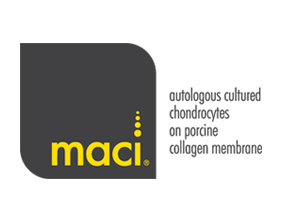Meniscal transplant surgery is a type of surgery that replaces your missing or damaged meniscus with a meniscus from a cadaver donor. The surgery usually takes place under general anesthesia.
Your knee has 2 wedge-shaped pieces of cartilage, 1 on each side of your knee. Each one of these pieces is called a ?meniscus.? These 2 rubbery menisci act as shock absorbers between your thighbone (femur) and your shinbone (tibia). A different type of cartilage capping the tibia and femur also helps your bones move smoothly. These 2 menisci help protect the ends of your femur and tibia as they move together.
Sometimes, a twisting injury may severely damage your meniscus. If the damage is severe enough, your surgeon may need to remove your meniscus. Without this meniscus cushion, the ends of your tibia and femur may start to rub together abnormally. Over time, this can cause persistent knee pain. Eventually, it may cause arthritis. Your cartilage ?cap? degrades and the bones beneath start to scrape together.
Meniscal transplant surgery provides another choice for you. Your surgeon makes a very small incision in your knee. He or she uses special instruments and cameras to access the joint space between your femur and tibia. Next, your surgeon surgically sews the donated meniscus into your joint space.
JRF Ortho specializes in providing orthopedic surgeons with the highest viability, most widely
available cartilage solutions in the industry. Our goal is to provide innovative solutions for allograft joint repair to orthopedic surgeons who specialize in helping patients regain movement and improve their quality of life; thus, JRF Ortho is redefining the standard for allograft joint repair and maximizing the gift of donation. Our unique member relationship with AlloSource??and Community Tissue Services??(CTS) enables us to offer the largest selection of specialized high-viability fresh osteochondral grafts, tendons and menisci in the industry. Through innovation and a commitment to clinical results and positive outcomes, JRF Ortho is redefining the standard for allograft joint repair.
Why might I need meniscal transplant surgery?
Meniscal transplant surgery might make sense for you if your meniscus was removed in a previous surgery. (This probably happened if the damage to your meniscus was so bad that surgeons couldn?t repair it in that previous surgery.) Without a meniscus, you might gradually develop knee pain and arthritis of your joint. Replacing your meniscus may provide significant pain relief. It may also help prevent arthritis in your joint. This can develop when your cartilage becomes frayed and rough. This surgery is less invasive than knee replacement surgery.
Meniscal transplant surgery might not make sense for you, even if you?ve had your meniscus removed. If you already have arthritis of your knee, the procedure might not help because you may already have too much damage to your cartilage and bone. Another procedure, like knee replacement, might be more effective.
You might be a good candidate for meniscal transplant surgery if the following apply to you:
- You?re younger than age 55.
- You?re missing more than half your meniscus, or you have a large meniscus tear that is irreparable.
- You have significant or persistent pain with activity, or you have an unstable knee.
- You have only minimal arthritis, or none at all.
- You have a knee with normal alignment and stable ligaments.
- You are not obese.
Watch the 3D Animation Video on Meniscal Transplant Surgery
Click here for full podcast playlist.















